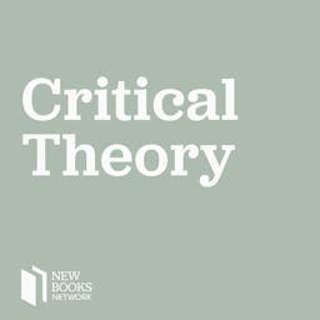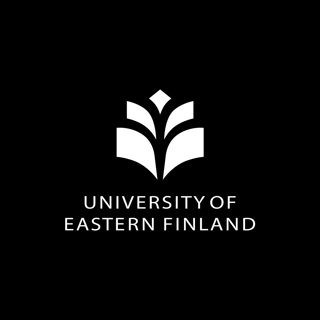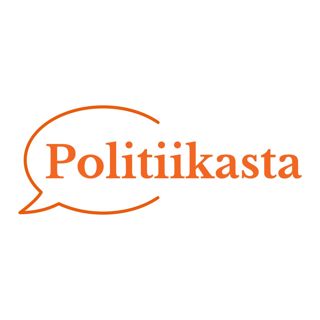
Rebecca Gordon-Nesbitt, “To Defend the Revolution is to Defend Culture: The Cultural Policy of The Cuban Revolution” (PM Press, 2015)
What are the alternatives to the current neo-liberal cultural settlement prevailing in much of the global north? In To Defend the Revolution is to Defend Culture: The Cultural Policy of The Cuban Revolution (PM Press, 2015), Rebecca Gordon-Nesbitt, from The Centre for Cultural Change, argues that this question can be addressed by learning from the cultural policy of the Cuban revolution. The book draws on a wealth of archival material, coupled with the theoretical framework of Marxist Humanism, to give a detailed picture of the revolutionary period on the island and chart the lessons from that era. The book introduces the key policy documents and events, along with examples from a variety of cultural forms, including a detailed engagement with the role of film and cinema in the revolutionary era. The book will be essential reading for cultural studies and cultural policy scholars, alongside anyone seeking an alternative vision of culture’s social role. Learn more about your ad choices. Visit megaphone.fm/adchoices Support our show by becoming a premium member! https://newbooksnetwork.supportingcast.fm/critical-theory
1 Joulu 201541min

Philip Roscoe, “A Richer Life: How Economics Can Change the Way We Think and Feel” (Penguin, 2015)
So many of our social questions are now the subject of analysis from economics. In A Richer Life: How Economics can Change the Way We Think and Feel (Penguin, 2015), Phillip Roscoe, a reader at the University of St Andrew’s School of Management, offers a critique of the long march of economics into social life. The book covers a vast range of social examples, including dating, organ transplantation, and education, alongside accessible engagements with historical and contemporary economic theory. Using personal examples as well as academic expertise, Roscoe’s book offers a primer in the social cost of economics, as well as what we can do to resit and challenge economistic modes of thought. Learn more about your ad choices. Visit megaphone.fm/adchoices Support our show by becoming a premium member! https://newbooksnetwork.supportingcast.fm/critical-theory
19 Marras 201538min

Katie Ellis, “Disability and Popular Culture: Focusing Passion, Creating Community and Expressing Defiance” (Ashgate, 2015)
Popular culture has been transformed in its attitudes towards disability, as representations across media forms continues to respond to the contemporary politics of disability. In Disability and Popular Culture: Focusing Passion, Creating Community and Expressing Defiance (Ashgate, 2015), Katie Ellis, a Senior Research Fellow at Curtin University, uses critical perspectives from disability studies to both challenge and celebrate the place of disability in popular culture. The book thinks through ideas of beauty, the role of children’s toys, representations in television and music, as well as science fiction and sport. Alongside the range of sites of disability and popular culture, the book closes with a case study of social media and the limits of inspirational images. The book is essential reading for cultural studies scholars, but raises important questions for a general readership. Learn more about your ad choices. Visit megaphone.fm/adchoices Support our show by becoming a premium member! https://newbooksnetwork.supportingcast.fm/critical-theory
8 Marras 201537min

Am Johal, “Ecological Metapolitics: Badiou and the Anthropocene” (Atropos Press, 2015)
The French philosopher Alain Badiou is not best known for his engagement with ecological matters per se. Badiou’s insights regarding being, truth, and political militancy are, however, highly relevant for the consideration of “the ecological question.” Based on a doctoral thesis written under Badiou’s supervision, Am Johal‘s new book, Ecological Metapolitics: Badiou and the Anthropocene(Atropos Press, 2015) is a thinking through and with Badiou’s work while addressing some of the most pressing concerns of our time: the relationship between human beings, technology, and nature; the meaning of change; and the possibilities of democratic politics and resistance. This, during an era that many now refer to as the “Anthropocene,” a period in which the impact of human beings on geological conditions and change has become unmistakable. Ecological Metapolitics is a work of engaged philosophy that will illuminate readers’ understanding of Badiou’s oeuvre. The book also makes an important contribution to our understanding of the past, present, and future of a modernity troubled on scales local and global. In dialogue with one of the most significant French thinkers of the postwar period, the book engages in ideas and debates that reach well beyond the boundaries of national spaces, cultures, and politics. Learn more about your ad choices. Visit megaphone.fm/adchoices Support our show by becoming a premium member! https://newbooksnetwork.supportingcast.fm/critical-theory
8 Marras 201551min

Hilary Neroni, “The Subject of Torture: Psychoanalysis and Biopolitics in Television and Film” (Columbia UP, 2015)
Did you notice that after 9/11, the depiction of torture on prime-time television went up nearly seven hundred percent? Hilary Neroni did. She had just finished a book on the changing relationship between female characters and violence in narrative cinema, and was attuned to function of violence in film and television. This was around the time the Abu Ghraib torture photos were leaked to the public. Over the next 10 years, torture porn appeared in the Saw and Hostel films, and it seemed that torture quickly became a routine element of thriller plots in movies and TV, such as the series 24. In The Subject of Torture: Psychoanalysis and Biopolitics in Television and Film (Columbia University Press, 2015), Neroni makes a compelling case that, prior to 9/11, the stage had already been set for the dehumanizing fantasy of torture to appear in mass culture – via biopolitics. With this book, Neroni takes on the task of defining and understanding torture through a psychoanalytic lens, using films and television as case studies. The book is both compelling and readable, and argues that the fantasy and depiction of torture play a role as an ideology in national politics and policy, and that it’s all more complicated than it seems–once you stop averting your eyes. Hilary Neroni teaches in the Film and Television Studies Program at the University of Vermont and is also the author of The Violent Woman: Femininity, Narrative, and Violence in Contemporary American Cinema. Her areas of interest include representations of gender and race in contemporary American film, violence in film, women directors, documentary film/video, feminist theory, psychoanalysis, and Marxism. She has published essays on women directors (in particular Jane Campion and Claire Denis) and on issues surrounding gender and violence in the cinema. Learn more about your ad choices. Visit megaphone.fm/adchoices Support our show by becoming a premium member! https://newbooksnetwork.supportingcast.fm/critical-theory
27 Loka 20151h

Aileen Moreton-Robinson, “The White Possessive: Property, Power, and Indigenous Sovereignty” (U of Minnesota Press, 2015)
Owning property. Being property. Becoming propertyless. These are three themes of white possession that structure Aileen Moreton-Robinson’s brilliant new inquiry into the dynamics of race and Indigeneity in “postcolonizing” societies like Australia.The White Possessive: Property, Power, and Indigenous Sovereignty (University of Minnesota Press, 2015) collects and expands over a decade of work that speaks to key dynamics both at the heart, and sometimes obscured, within critical Indigenous studies. A Goenpul scholar from Minjerribah (Stradbroke Island), Quandamooka First Nation (Moreton Bay) in Queensland, Australia, Aileen Moreton-Robinson is the author of numerous previous books and articles in the fields of law and sovereignty, whiteness, race and feminism, and is a Council Member of the Native American and Indigenous Studies Association. Learn more about your ad choices. Visit megaphone.fm/adchoices Support our show by becoming a premium member! https://newbooksnetwork.supportingcast.fm/critical-theory
22 Loka 20151h

Paul Bonin-Rodriguez, “Performing Policy” (Palgrave, 2014)
How has American cultural and artistic policy changed over the last 25 years? Performing Policy: How Contemporary Politics and Cultural Programmes Redefined US Artists for the Twenty-First Century (Palgrave, 2014) explains the process of policy-making, funding models, NGOs and specific places that have shaped the current cultural settlement in the USA. Paul Bonin-Rodriguez’s book uses examples of policy reports, theatre and cross-arts organisations, as well as drawing on debates about creative platemaking. The multi-disciplinary approach allows Performing Policy to speak directly to the history of arts funding, in the context of the U.S.’s culture wars, as well as to the contemporary question of the role and purpose of the artist in society, along with how those artists might be educated. The book will be important reading for cultural policy and arts management students, as well as those in cultural studies. Learn more about your ad choices. Visit megaphone.fm/adchoices Support our show by becoming a premium member! https://newbooksnetwork.supportingcast.fm/critical-theory
20 Loka 201559min

Kate Pahl, “Materializing Literacies in Communities: The Uses of Literacy Revisited” (Bloomsbury, 2014)
Literary practices are often associated with specific social groups in particular social settings. Kate Pahl‘s Materializing Literacies in Communities: The Uses of Literacy Revisited (Bloomsbury, 2014) challenges these assumptions by showing the varieties of literary practice in Rotherham, England. The book engages with the locally particular to draw out a variety of general findings, relevant to methodological reflection and material culture debates. The book draws on a wealth of projects from the AHRC funded Connected Communities programme, including Fishing as Wisdom, The Imagine Project, and Language as Talisman. The book represents an important intervention into how we understand community, literacy and identity. Learn more about your ad choices. Visit megaphone.fm/adchoices Support our show by becoming a premium member! https://newbooksnetwork.supportingcast.fm/critical-theory
6 Loka 201537min


















